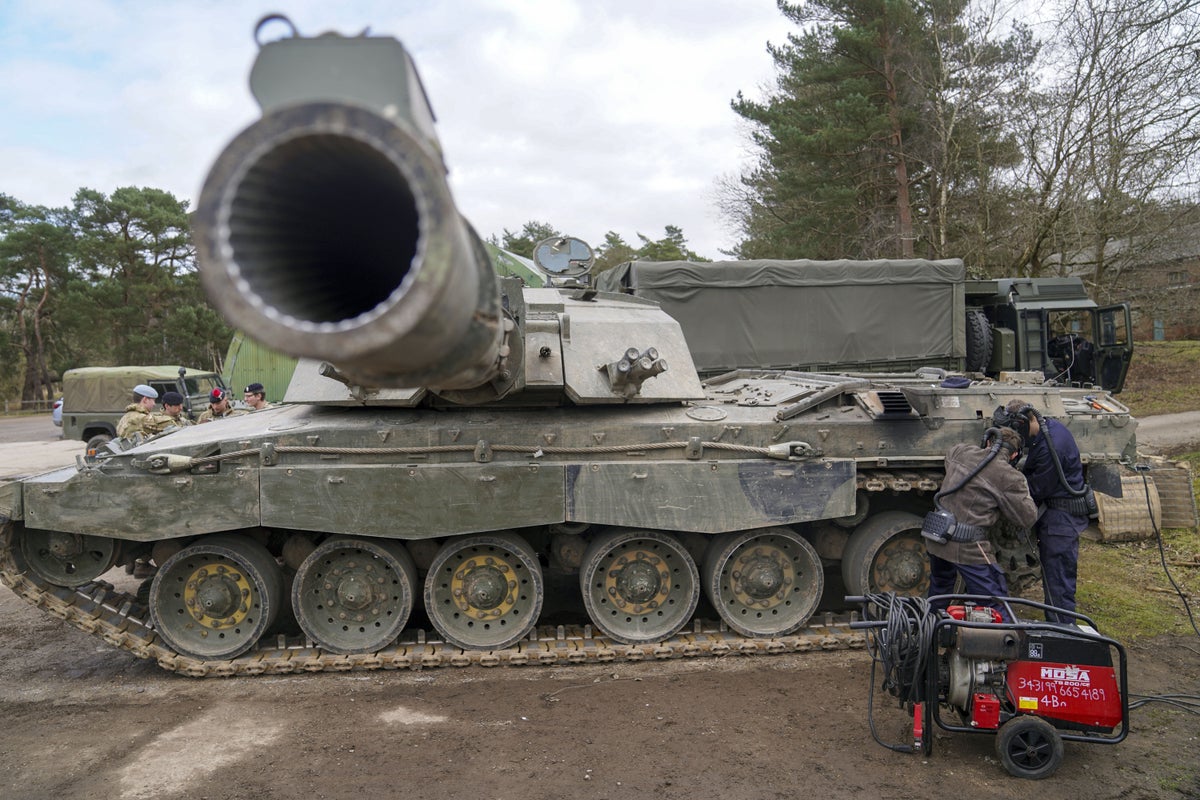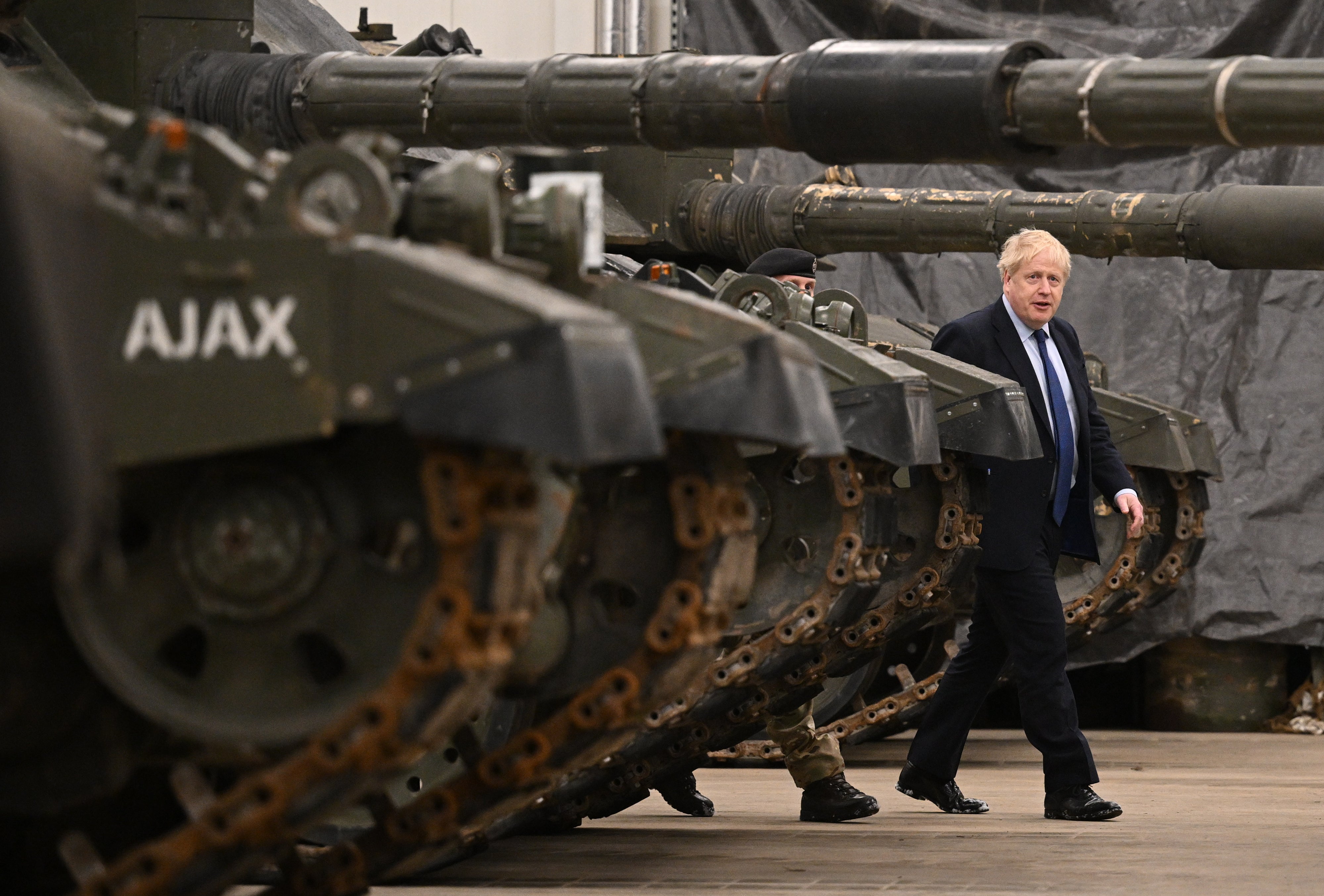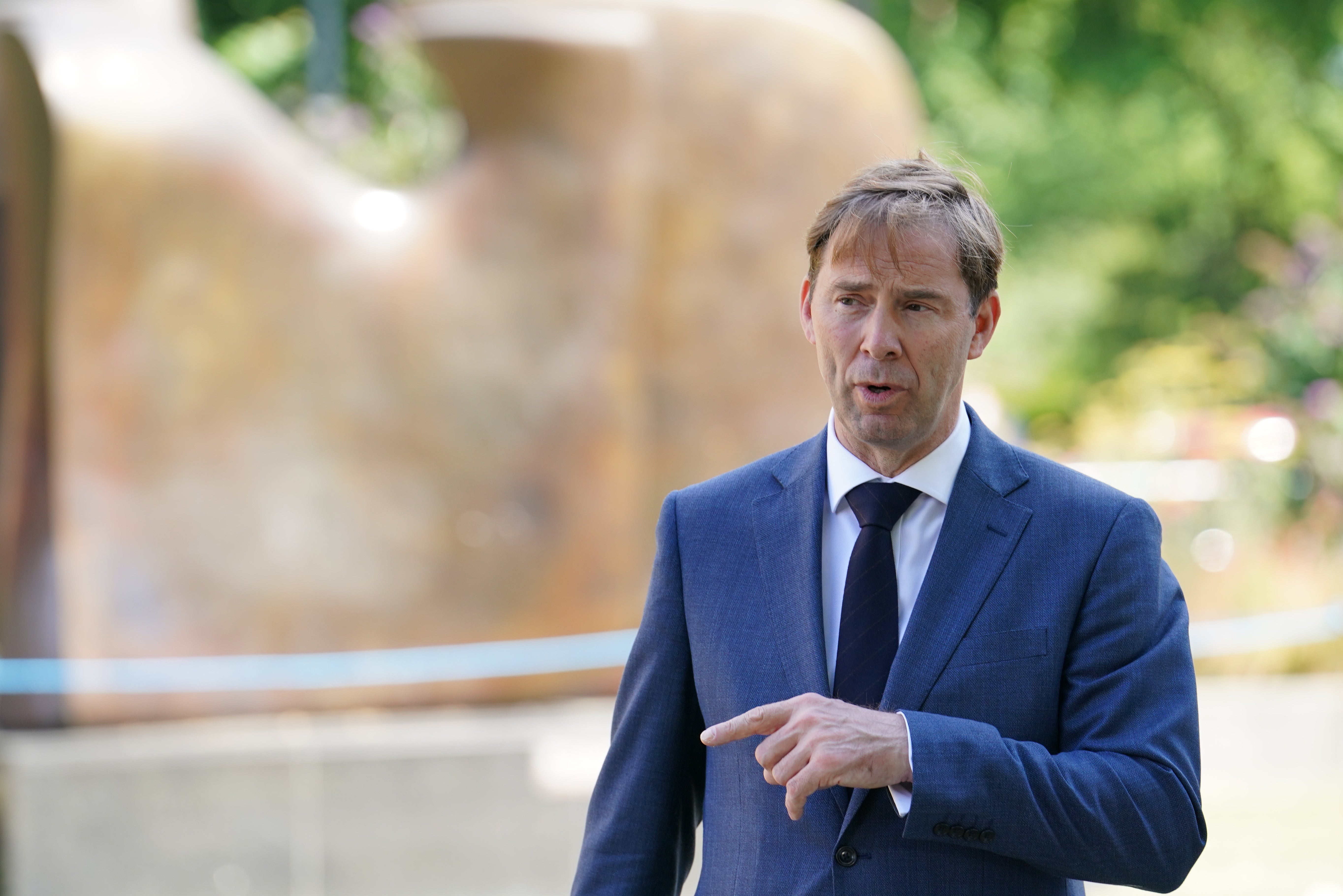
Planned cuts to the size of the British Army must be abandoned at a time of “open war” in Europe, MPs have said.
The Ministry of Defence and military top brass risk looking “arrogant and unwilling to learn lessons” unless plans contained in key Government foreign policy and security policy documents are redrawn in response to the Russian invasion of Ukraine and the chaotic withdrawal from Afghanistan, the MPs said.
The cross-party Commons Defence Committee said it is “especially concerned” about a planned 9,000 troop cut in the size of the Army, not only because of the war in Europe but also because the military is increasingly being called on domestically to relieve “exceptional pressure on public services”.

The MPs were responding to a series of Government papers setting out foreign and defence policy, including the sweeping Integrated Review which set out Boris Johnson’s vision for a global Britain tilting towards the Indo-Pacific region and away from Europe.
The committee warned “the impact of both the Afghan withdrawal and the Russian full-scale invasion of Ukraine are being seemingly dismissed as insignificant and there appears to be no intention to revisit the conclusions of the documents”.
“UK defence thus appears… arrogant and unwilling to learn lessons,” the MPs said, adding that the events of the last 12 months demonstrate the Government was “manifestly not prepared” for major international crises.
The size of the regular Army is set to fall from the commitment of 82,000 made in 2015 to 73,000 by 2025 under current plans.
But the MPs warned that as well as their key defence role, the armed forces are being used as “backfill” to carry out civilian tasks by Whitehall departments “seemingly unable to respond to crises”.

Defence Committee chairman Tobias Ellwood said: “In these uncertain times, our capabilities and readiness must be ironclad. With open war raging in Europe, widespread economic instability and the catastrophic Afghanistan withdrawal underscoring the Government’s lack of preparedness for international crises, we must be clear-eyed about the challenges ahead”.
He added “it is clear that now is not the time for personnel cuts or budget shortfalls in our armed forces”.
Spending on defence has been a key issue in the Tory leadership campaign, with Liz Truss promising to increase it to 3% of gross domestic product (GDP), a measure of the size of the economy.
But Mr Ellwood said while promises to increase the budget are welcome, “inflationary pressures make this a real-terms fall”.
He added: “We cannot afford for our services to become poorer and weaker. We need to spend more, and spend it wisely.
“We must act now to prepare and consolidate our nation’s defences – anything less would be denial of the reality we face.”
The committee also criticised the Prime Minister’s suggestion that “the old concepts of fighting big tank battles on the European landmass… are over” following the scenes of armoured fighting in Ukraine.
“Whilst investments in new technology are vital, it is also clear that the days of ‘big tank battles on the European landmass’ are not over,” the MPs said, calling for a review of the assumptions made in the Integrated Review and Defence in a Competitive Age papers.
A defence source said: “Whilst we agree with the chair of the Defence Select Committee that our approach must be threat-led, some of his comments are inconsistent and do not reflect the work we are currently undertaking to keep our nation safe.”
An MoD spokesperson said: “The Command Paper and Integrated Review put a threat-led approach firmly at the heart of the Ministry of Defence’s work.
“We are delivering our vision to support and equip our armed forces, including the need to invest for the long term in vital capabilities such as future fighter jets, nuclear submarines and more advanced tanks. This is bolstered by the £24 billion settlement over four years.
“We are proud of our personnel and the work they do across the world, including the withdrawal from Afghanistan and our ongoing support for Ukraine.
“We are acutely aware that our nation’s resilience is crucial and we will continue to adapt our strategy and response to meet emerging threats and challenges.”







